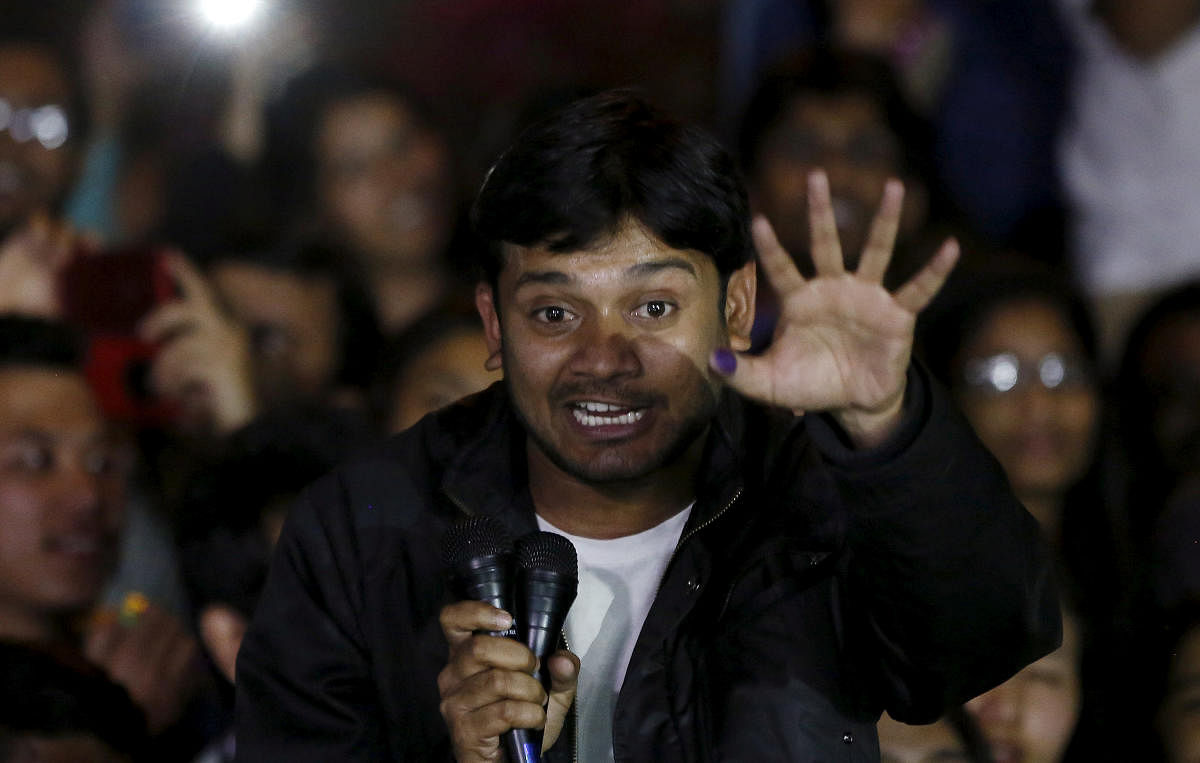
The charge-sheeting of former JNU students’ union president Kanhaiya Kumar and some other former and current JNU students for sedition, soon after the slapping of similar charges against prominent personalities in Assam, shows that the government will not stop misusing this draconian provision, despite persistent criticism from the courts and civil society. Delhi Police has invoked sections relating to sedition and other “unlawful’’ activities, three years after the students raised “objectionable’’ slogans and just as the ruling BJP faces a tough Lok Sabha election. In Assam, sedition charges have been invoked against a prominent academic and writer, Hiren Gohain, rights activist Akhil Gogoi and journalist Manjit Mahanta for opposing the Citizenship (Amendment) Bill and warning that it might lead to a revival of separatism in the state if the protests against the bill are ignored.
Any criticism of the Narendra Modi government, its actions and policies is labelled anti-national. Even a section of the media has become party to the hunt for ‘anti-nationals’ and the branding of critics and dissenters as traitors. The FIRs against Gohain and others have created more public anger in Assam, where the Citizenship Bill is considered as another attempt to swamp Assamese identity. Sedition charges have been filed against many others also in the recent past for criticism of the government and on other flimsy and unsustainable grounds. It is ironic that in many cases, as with Gohain and others, the expression of concern over threats to the nation is punished with the slapping of sedition cases.
In all the cases, the charges are about exciting disaffection against the government, waging war against it and committing offences against the State. The courts have repeatedly said that sedition clauses can be invoked only if there is actual incitement to take up arms or resort to violence and there is an imminent threat to public order. Explanations 2 and 3 of IPC Section 124-A clearly state that comments expressing disapprobation of the government do not constitute sedition. The alleged sloganeering at JNU has neither caused a violent uprising against the State nor to the committing of offences against it in the three years since. The only conclusion one can draw, therefore, is that a government afraid of its own shadow feels threatened enough by students and intellectuals to repeatedly wield this heavy weapon against them. The government’s fear of Kanhaiya Kumar is, perhaps, understandable. The young man easily outdoes Prime Minister Modi in his oratory and leaves a deep impression on his audiences, many of them young voters. That certainly constitutes a threat to Modi and the BJP’s chances of winning the Lok Sabha elections, since Kanhaiya plans to contest polls this time and could well be deployed to campaign widely.